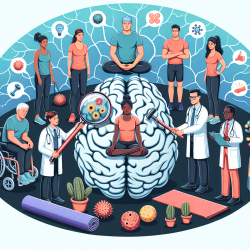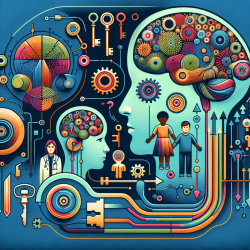Pain catastrophizing is a psychological phenomenon that significantly impacts individuals' ability to cope with pain. Characterized by feelings of helplessness, rumination, and magnification of pain-related thoughts, it can lead to increased pain perception and disability. As a practitioner, understanding this concept is crucial for improving patient care and outcomes.
The Impact of Pain Catastrophizing
Pain catastrophizing has been linked to poorer prognosis in both acute and chronic pain conditions. It is an independent risk factor for predicting the chronicity of pain and can exacerbate physical disability. Studies have shown that higher levels of pain catastrophizing correlate with reduced physical performance and increased disability.
Models of Pain Catastrophizing
Several models explain the mechanisms behind pain catastrophizing:
- Attention-bias model: This model suggests that individuals with high pain catastrophizing have a dysfunctional bias towards focusing on pain, which interrupts their attention and cognitive processes.
- Schema-activation model: Proposes that individuals possess a distorted cognition about pain, leading to heightened pain experiences when faced with minimal stimuli.
- Appraisal model: Focuses on how individuals assess and cope with pain stressors, often leading to maladaptive responses in those prone to catastrophizing.
- Communal coping model: Suggests that expressing exaggerated pain experiences is a strategy to solicit social support, which may reinforce maladaptive behaviors.
Practical Implications for Practitioners
Understanding these models can help practitioners develop targeted interventions. Cognitive-behavioral therapy (CBT) is effective in addressing maladaptive thought patterns associated with pain catastrophizing. Encouraging patients to engage in mindfulness practices can also help reduce rumination and improve coping strategies.
Encouraging Further Research
The field of pain catastrophizing is continually evolving. Practitioners are encouraged to stay informed about the latest research developments through academic journals and professional conferences. Understanding the genetic, neurophysiological, and psychosocial determinants of pain catastrophizing will enhance the ability to provide comprehensive care.
For those interested in delving deeper into this topic, I recommend reading the original research paper titled "Pain Catastrophizing: An Updated Review" by Lawrence Leung.










